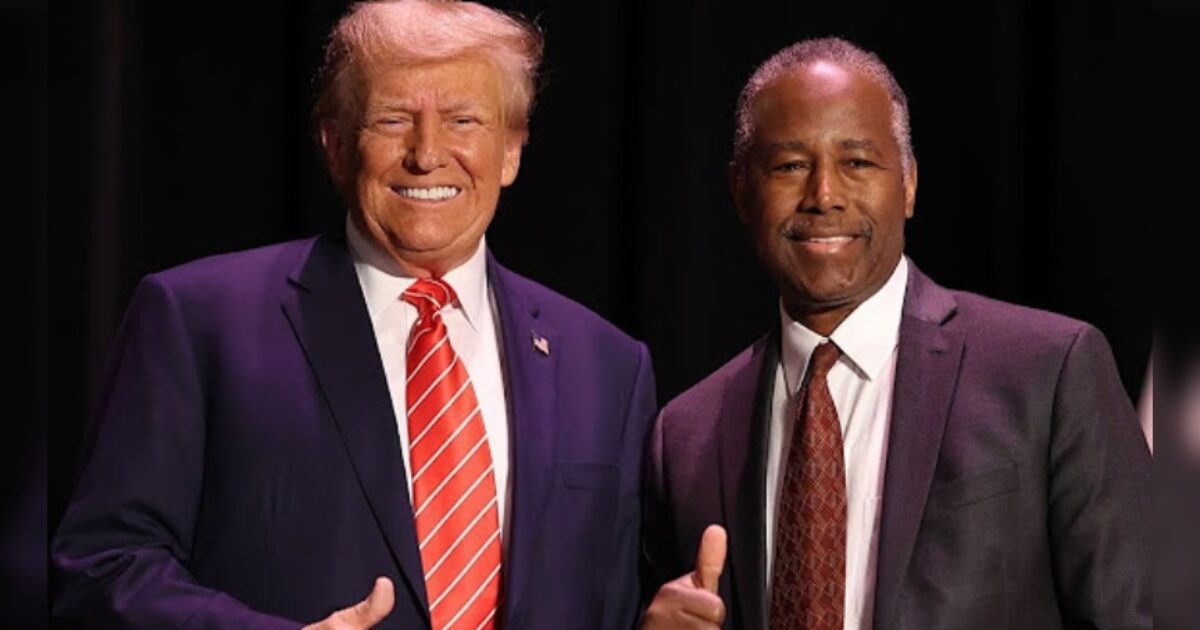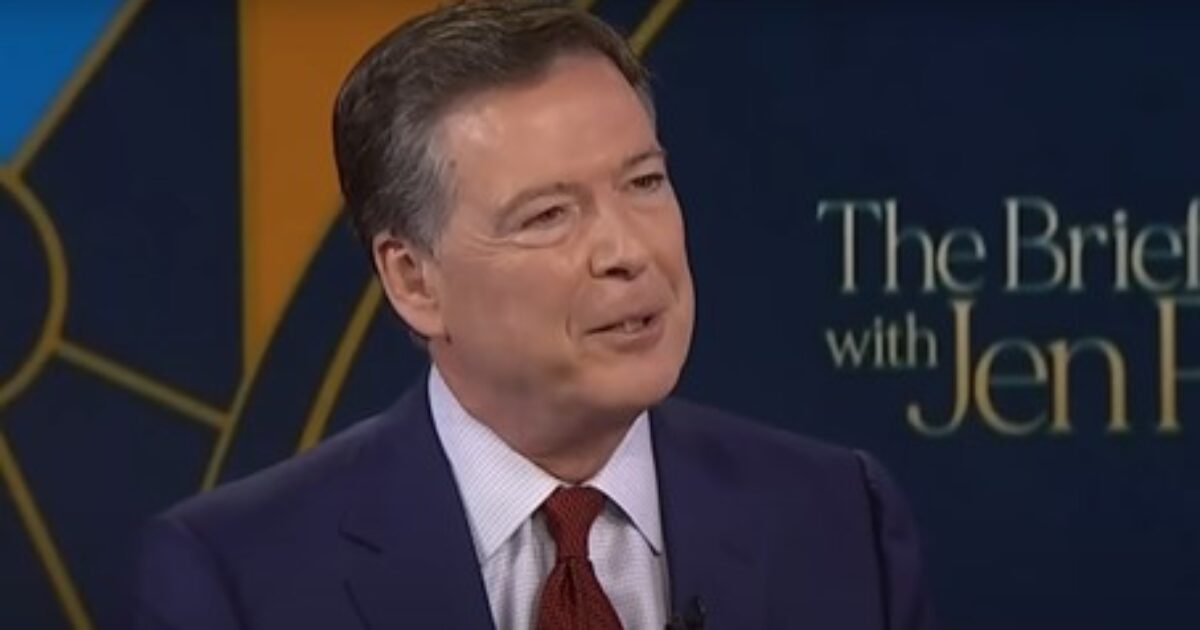| What: | Enactment of the Digital Accountability and Transparency Act |
| When: | May 9, 2014 |
| Why it matters: | The landmark law transformed the way federal agencies collect and report their spending information, changing culture around budget transparency along the way. |
Politics
DATA Act spurred a quiet revolution in government spending transparency


A decade ago, data on federal spending was a bit of a mess. Sure, the USASpending.gov website existed, and it was populated with grant and contract expenditures from across the government. But that data tended to be inconsistent, was sometimes inaccurate, and was presented in a way that made it all but impossible to match the total of agencies’ transaction-level outlays with what their topline numbers said they were spending.
Things are still far from perfect, but by and large, the 2014 Digital Accountability and Transparency Act (DATA Act) solved the challenge its backers were aiming to tackle: making it much easier to reliably track and analyze the flow of federal dollars from congressional appropriations all the way down to individual contracts.
“It is unacceptable for federal spending on data currently to be so inaccurate, unpredictable, inconsistent, and quite frankly expensive,” Rep. Darrell Issa (R-Calif.), one of the DATA Act’s lead champions, said in remarks on the House floor just before its passage in 2014. “Nobody can follow the money at the federal level these days in spite of the fact that we spend over 82 billion dollars on IT … If we are going to handle large data in a way that gives us predictable success rather than inevitable failure, we have to start by demanding that data be structured from the day it is created and formatted in a way that makes it capable of search, aggregating, downloading in bulk, and manipulating both for the benefit of insiders trying to find accountability, and outsiders legitimately exercising their right to know how government is spending their money.”
(Story continues below video)
And that’s largely what happened in the decade that followed, as agencies, led by the Treasury Department, quickly began to see compliance with the law as not just another compliance exercise, but one that could bring meaningful benefits to how they managed their own budgets.
“It created a whole new way of talking about data common identifiers that are persistent and that are used across government, and it had a forcing function that brought all these people together who otherwise wouldn’t have worked together across the government,” said Daniel Schuman, a government accountability and transparency expert who advocated for the law’s passage and now leads the American Governance Institute. “It prompted Treasury to change how its systems work, and [the Office of Management and Budget] and the agencies to do so as well. This has only happened a couple of times in my career, but it was a law that was aimed at changing a process, and it ended up changing culture, which in government is much more important.”
The DATA Act had several specific requirements, most of which were geared directly toward presenting a much more robust, reliable and detailed picture of federal spending via the USASpending.gov portal. But to achieve that big objective, agencies also had to coalesce around governmentwide data standards that are still being updated today, connect all of their contract, loan and award data to specific agency programs, and streamline their systems for collecting and reporting spending data.
Implementation and culture change
By 2012, the deadline for agencies to achieve implementation of the DATA Act, those goals were largely met — with some notable exceptions. A Government Accountability Office report summarizing implementation progress reported by each agency’s inspector general found, for example, that 45 of the 57 agencies included in the implementation reporting had achieved “excellent” or “higher” scores on the quality of spending data they were submitting for public consumption.
At that point, only 12 agencies reported “moderate” or “lower” quality, though those agencies are also some of the largest, including the departments of Defense, Homeland Security and Veterans Affairs.
Although public reporting on DATA Act implementation largely stopped in 2012, DoD, for example, continues to report challenges with implementing the law. In its annual financial report last year, the department acknowledged that its “complex operating environment does not enable matching awards to accounting data for public transparency.”
But the widespread implementation success started fairly soon after the act was signed into law as agencies began to see the value of speaking a common language with their fiscal affairs. Within the first few years, better quality data and a new USASpending website was already starting to come into view.
As part of a 2017 special report on the DATA Act’s implementation, Christina Ho, Treasury’s then-deputy assistant secretary for accounting policy and financial transparency, credited agencies working together for some of the early wins.
“Because we took the agile approach, which required us to engage with the agency and work together, every two weeks they had the opportunity to test. We built something, they tested it, then we adjusted based on the feedback,” Ho said. “So there were really no surprises for the agencies in terms of submission, because by the time they were submitting they’d already done a lot of testing, and also we have been very responsive. If there were changes they needed to make and they gave us feedback and we felt that was really good feedback, they get that updated in a matter of weeks. I would say that very few government entities can say they have that kind of response rate for any type of IT changes.”
Schuman said that collaborative approach — and openness to input from outside advocacy groups — also eventually paved the way for greatly improved public access to how taxpayer funds were being used.
“The idea was we’re going to make sure that even though we’re at different agencies or different components, that everything kind of lines up. And because we have this vision that we should be able to see everything and be able to zoom in or pull out … that doesn’t happen because there’s a bunch of people nerding really hard to make it happen. It happens because the data is set up so that anybody can do this,” he said. “This is not a function that requires a data call. This is, you go to the website and you download some information and it just works. Everyone is going to use the information that they’re generating and we’re going to make sure that we’re talking about it in the same way so that you’re actually comparing apples to apples. And that worked.”
Maintaining transparency momentum
However, even with the firm foundation the DATA Act created for government spending information, there are serious questions about how enduring the act’s legacy will be. Some of the same advocates who worked in collaboration with government leaders to make data more accessible are now taking their successors to court, accusing them of concealing that data.
The latest development on that front happened just this week, when a federal judge ruled that the Trump administration had illegally removed a public database on the regular funding allotments OMB makes to federal agencies and ordered the Public Apportionments Database restored by no later than Thursday morning.
Acting under a congressional mandate, OMB had operated the website for nearly three years before Russ Vought, the OMB director, ordered the website shut down in March, saying it contained “sensitive, predecisional, and deliberative information” and that public disclosure of OMB’s apportionments “have a chilling effect on the deliberations within the Executive Branch.”
Judge Emmet Sullivan rejected those arguments in a decision Monday.
“The law is clear: Congress has sweeping authority to require public disclosure of how the Executive Branch is apportioning the funds appropriated by Congress,” he wrote. “Under the law, the decision of the Executive Branch must be made public within two days of the decision. And if defendants need to make a new decision, that new decision must also be made public within two days … there is nothing unconstitutional about Congress requiring the Executive Branch to inform the public of how it is apportioning the public’s money. Defendants are therefore required to stop violating the law!”
Data collection capacity
And there are also signs that the government’s capacity to collect and maintain data is dwindling. In its annual “Evidence Capacity Pulse Report,” published in June, the Data Foundation noted that chief data officer positions are vacant at six large agencies, partly due to resignations and reductions in force; nearly half of the government’s statistical agencies are operating with acting leadership; and some agencies are simply reducing the amount of data they collect because of “hiring freezes and suspension of researcher access to restricted data.”
Nick Hart, the foundation’s CEO, said President Trump has made some significant moves toward more open data, including by publishing a federal data strategy in his first term, and with an executive order to eliminate “information silos” earlier this year. But the trend toward reduced data capacity is noteworthy, he said.
“Back in May, the Data Foundation learned about a survey that DOGE was conducting of the federal statistical agencies, in particular data collections. And we thought this was a bit peculiar, in part because decisions typically about statistical activities are protected due to requirements for independence from the political processes,” Hart told Federal News Network. “And that’s not to say that we don’t use values and different perspectives to determine what information to collect and how to manage it. But typically, the leaders of statistical agencies or the chief statistician of the United States would be making those determinations about both what to collect and what not to collect, and when to end terminations. There are a number of federal statistical agencies that have been reducing data collections because of attrition in staff and also limited resources. That includes things like reducing the ways that we collect the CPI, the consumer price index, for inflation. And that will have potentially some impacts on users around the quality of the information in the years ahead.”
Indeed, maintaining federal agencies’ capacity to collect and make use of data over time was one of the foremost concerns on the minds of the DATA Act’s sponsors when the law was first passed.
“We have got to stay on this,” Sen. Mark Warner (D-Va.) said in 2015 as the law’s implementation was first getting underway. “As a business guy, you have got to invest to actually save money in the long run. Trying to make sure the agencies have the resources to do these reviews, set up these systems in a way that makes sense, will obviously save us resources in the long run and make our jobs as policy makers in making these budget decisions more accurate and appropriate.”
The post DATA Act spurred a quiet revolution in government spending transparency first appeared on Federal News Network.
Politics
President Trump Taps Dr. Ben Carson for New Role — A HUGE Win for America First Agenda

Dr. Ben Carson is the newest member of the Trump administration.
On Wednesday, former Secretary of the Department of Housing and Urban Development, Ben Carson, was sworn in as the national adviser for nutrition, health, and housing at the U.S. Department of Agriculture.
Agriculture Secretary Brooke Rollins shared that Carson’s role will be to oversee Trump’s new Big Beautiful Bill law, which aims to ensure Americans’ quality of life, from nutrition to stable housing.
After being sworn in, Carson shared, “Today, too many Americans are suffering from the effects of poor nutrition. Through common-sense policymaking, we have an opportunity to give our most vulnerable families the tools they need to flourish.”
WATCH:
BREAKING Dr. Ben Carson has been sworn in as the National Nutrition Advisor to Make America Healthy Again
THIS IS A HUGE WIN pic.twitter.com/Dr5AsSDkRM
— MAGA Voice (@MAGAVoice) September 24, 2025
Per USDA:
Today, U.S. Secretary of Agriculture Brooke L. Rollins announced that Dr. Benjamin S. Carson, Sr., M.D., was sworn in as the National Advisor for Nutrition, Health, and Housing at the U.S. Department of Agriculture (USDA).
“There is no one more qualified than Dr. Carson to advise on policies that improve Americans’ everyday quality of life, from nutrition to healthcare quality to ensuring families have access to safe and stable housing,” said Secretary Rollins.
“With six in ten Americans living with at least one chronic disease, and rural communities facing unique challenges with respect to adequate housing, Dr. Carson’s insight and experience is critical. Dr. Carson will be crucial to implementing the rural health investment provisions of the One Big Beautiful Bill and advise on America First polices related to nutrition, health, and housing.
“As the U.S. Secretary of Housing and Urban Development in the first Trump Administration, Dr. Carson worked to expand opportunity and strengthen communities, and we are honored to welcome him to the second Trump Administration to help lead our efforts here at USDA to Make America Healthy Again and ensure rural America continues to prosper.”
“Today, too many Americans are suffering from the effects of poor nutrition. Through common-sense policymaking, we have an opportunity to give our most vulnerable families the tools they need to flourish,” said Dr. Ben Carson. “I am honored to work with Secretary Rollins on these important initiatives to help fulfill President Trump’s vision for a healthier, stronger America.”
On Sunday, Dr. Carson was one of the many speakers at the memorial service of the late TPUSA founder Charlie Kirk.
During the memorial service, Carson highlighted that Kirk was shot at 12:24 p.m. and then continued to share the Bible verse John 12:24, which reads, “Verily, verily, I say unto you, Except a corn of wheat fall into the ground and die, it abideth alone: but if it die, it bringeth forth much fruit.”
WATCH:
Ben Carson reads John 12:24 at the Charlie Kirk’s funeral. Charlie was shot at 12:24.
It reads: “Very truly I tell you, unless a kernel of wheat falls to the ground and dies, it remains only a single seed. But if it dies, it produces many seeds”
God is moving and speaking. pic.twitter.com/0ZbVTAwwYl
— Danny Botta (@danny_botta) September 21, 2025
The post President Trump Taps Dr. Ben Carson for New Role — A HUGE Win for America First Agenda appeared first on The Gateway Pundit.
Politics
LEAKED MEMO: Deep State Prosecutors in the Eastern District of Virginia Claim There Isn’t Enough Evidence to Convict Comey Amid Reports of Imminent Indictment


On Wednesday evening, disgruntled officials in the Eastern District of Virginia leaked contents of a memo explaining why charges should not be brought against James Comey.
As reported earlier, former FBI Director James Comey is expected to be indicted in the Eastern District of Virginia in the next few days.
Comey will reportedly be charged for lying to Congress in a 2020 testimony about whether he authorized leaks to the media.
Officials in the Eastern District of Virginia are still fighting to stop Comey from being charged after Trump fired US Attorney Erik Siebert.
President Trump last week fired Erik Siebert as the US Attorney for the Eastern District of Virginia because he refused to bring charges against Letitia James, Comey, Schiff and others.
On Saturday evening, President Trump announced that he had appointed Lindsey Halligan – his personal attorney who defended him against the Mar-a-Lago raid – as US Attorney for the Eastern District of Virginia.
Now, with just days to go before the statute of limitations runs out to charge Comey for lying during a September 30, 2020 testimony, Lindsey Halligan is reportedly gearing up to indict Comey.
Prosecutors reportedly gave newly sworn-in Halligan a memo defending James Comey and explaining why charges should not brought against the fired FBI Director.
Per MSNBC’s Ken Dilanian:
Two sources familiar with the matter tell me prosecutors in the EDVA US attorney‘s office presented newly sworn US attorney Lindsey Halligan with a memo explaining why charges should not be brought against James Comey, because there isn’t enough evidence to establish probable cause a crime was committed, let alone enough to convince a jury to convict him.
Justice Department guidelines say a case should not be brought unless prosecutors believe it’s more likely than not that they can win a conviction beyond a reasonable doubt.
Two sources familiar with the matter tell me prosecutors in the EDVA US attorney‘s office presented newly sworn US attorney Lindsey Halligan with a memo explaining why charges should not be brought against James Comey, because there isn’t enough evidence to establish probable…
— Ken Dilanian (@DilanianMSNBC) September 24, 2025
The post LEAKED MEMO: Deep State Prosecutors in the Eastern District of Virginia Claim There Isn’t Enough Evidence to Convict Comey Amid Reports of Imminent Indictment appeared first on The Gateway Pundit.
Politics
Nearly 8 in 10 Voters Say the United States is in Political Crisis After the Assassination of Charlie Kirk

Nearly eight in ten voters believe that the United States is in a political crisis in the wake of the assassination of conservative icon Charlie Kirk.
According to a Quinnipiac University national poll of registered voters released on Wednesday, a massive 93 percent of Democrats, 84 percent of independents, and 60 percent of Republicans said the nation is in a political crisis.
“The Kirk assassination lays bare raw, bipartisan concerns about where the country is headed,” Quinnipiac University Polling Analyst Tim Malloy said of the poll results.
Quinnipiac reports:
Seventy-one percent of voters think politically motivated violence in the United States today is a very serious problem, 22 percent think it is a somewhat serious problem, 3 percent think it is a not so serious problem, and 1 percent think it is not a problem at all.
This is a jump from Quinnipiac University’s June 26 poll when 54 percent thought politically motivated violence in the United States today was a very serious problem, 37 percent thought it was a somewhat serious problem, 6 percent thought it was a not so serious problem, and 2 percent thought it was not a problem at all.
Nearly 6 in 10 voters (58 percent) think it will not be possible to lower the temperature on political rhetoric and speech in the United States, while 34 percent think it will be possible.
Over half, 54 percent, of voters believe the US will see increased political violence over the next few years. Another 27 percent said they think it will stay “about the same,” while just 14 percent believe it will ease.
A 53 percent majority also said they are “pessimistic about freedom of speech being protected in the United States.”
Surprisingly, a 53 percent majority also believes the current system of democracy is not working.
“From a perceived assault on freedom of speech to the fragility of the democracy, a shudder of concern and pessimism rattles a broad swath of the electorate. Nearly 80 percent of registered voters feel they are witnessing a political crisis, seven in ten say political violence is a very serious problem, and a majority say this discord won’t go away anytime soon,” Malloy added.
The vast majority, 82 percent, said the way that people discuss politics is contributing to the violence.
“When asked if political discourse is contributing to violence, a rare meeting of the minds…Republicans, Democrats, and independents in equal numbers say yes, it is,” Malloy said.
The survey was conducted from September 18 to 21 among 1,276 registered voters with a margin of error of +/- 3.3 percentage points.
The post Nearly 8 in 10 Voters Say the United States is in Political Crisis After the Assassination of Charlie Kirk appeared first on The Gateway Pundit.
-

 Entertainment6 months ago
Entertainment6 months agoNew Kid and Family Movies in 2025: Calendar of Release Dates (Updating)
-

 Entertainment3 months ago
Entertainment3 months agoBrooklyn Mirage Has Been Quietly Co-Managed by Hedge Fund Manager Axar Capital Amid Reopening Drama
-
Tech6 months ago
The best sexting apps in 2025
-

 Entertainment5 months ago
Entertainment5 months agoKid and Family TV Shows in 2025: New Series & Season Premiere Dates (Updating)
-

 Tech7 months ago
Tech7 months agoEvery potential TikTok buyer we know about
-
Tech7 months ago
iOS 18.4 developer beta released — heres what you can expect
-

 Tech7 months ago
Tech7 months agoAre You an RSSMasher?
-

 Politics7 months ago
Politics7 months agoDOGE-ing toward the best Department of Defense ever





